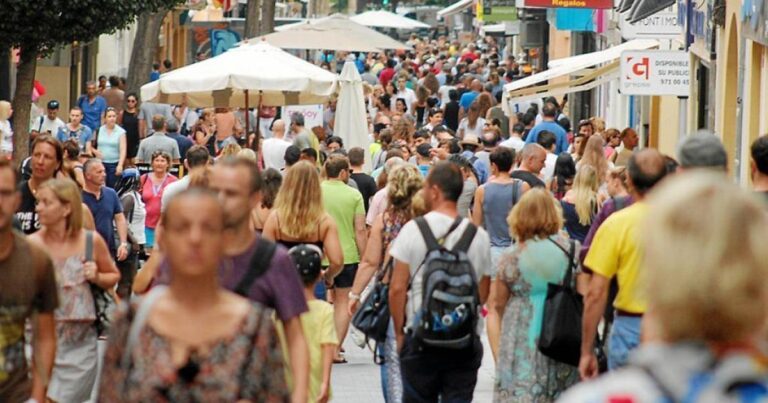A major failure in economic growth patterns occurred in the mid-1990s.
Professor Antoni Riera has been given great responsibility: a leading economist, he is coordinator of the working group put together by the Balearic Government’s objective of creating a social and political agreement for sustainability, and is in fact the driving force behind redefining the tourism strategy of the Balearic Islands for the coming decades.
Broadly speaking, he says, the mission is to establish sustainable tourism growth patterns at a time when it is acknowledged that current tourism growth patterns are not sustainable: “The carrying capacity of many related factors has been exceeded, causing economic, social and environmental problems.”
He said tourism contributes to development and prosperity, but that “aggressive and decisive action” was needed to confront and respond to global challenges on economic inequality, climate change and pollution, technological innovation and global connectivity.
Professor Antoni Riera. Photo: Jaume Morey.
He refers to the demographic pressure caused by a combination of permanent and temporary population, and believes that this pressure can be alleviated: “I don’t just come up with it, I believe that society wants a future scenario with less demographic pressure. And if I’m right, we have to find a way to achieve this. I can think of only one way: to decouple the annual economic growth of the Balearic Islands from the increase in population, workers, international tourists and other productive factors.”
A big question is whether to limit the numbers of tourists coming to Mallorca and the Balearic Islands. Professor Riera argues that the question is not whether the strategy is easy or difficult, but whether it is possible, feasible and socially efficient – whether it is the best and least costly response for society.
“Limiting the numbers of arrivals is not possible because the Spanish and European legal systems do not allow it. But even if we imagined that it was possible, it would certainly not be feasible. It would not be the best solution to the huge problem we face. Acting individually or partially (whether to increase, decrease or reallocate) on the numbers of cruise ships, tourists, residents, fairs or cars cannot be done without taking into account the complex interrelationships that exist within the tourist system of the Balearic Islands. There are no simple and understandable relationships between cause and effect, but complex interactions that lead to unpredictable consequences.
“Saturation is one of the many symptoms that society suffers as a result of a big problem that we have not faced for more than 20 years: the way the Balearic Islands grow and generate well-being. We cannot continue to address the problem in the simple, piecemeal and partial way we have been doing it.”
“We have been poorer for 20 years. In 2000, our per capita income was 22.8% higher than that of European citizens; today it is 10% lower. Inequality is growing. And we will continue to get poorer every year no matter what we do, unless we change the pattern of economic growth that has been in place since the 1960s, and which has failed to shift from quantity to value as it should have done in the mid-1990s.”
“During the first tourist boom, the Balearic Islands underwent a productivity revolution that put them among the top 50 most prosperous regions in Europe. Productivity increased in the 60s and 70s, but after reaching a peak in 1994, it began to decline. Thirty years later, the peak levels of productivity have not been recovered and the negative effects of tourism have only grown. In the last decade, productivity has barely recovered enough to sustain the well-being to which this society rightfully aspires.”
“The risk is no longer of saturation, population growth, house prices, noise, social, spatial and cultural inequalities, but of losing the possibility of continuing progress. We need to recognize that tourism has been a social elevator, but after a long period of prosperity it has also created elements of rupture that undermine its ability to remain a driver of progress. Today, the risk is that tourism can no longer continue to generate wealth and well-being.”

